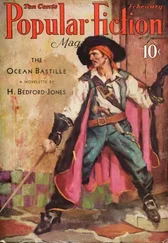In the end, we had to go into the restaurant and ask the car’s new owner if we could buy it back. He thought it over while he chewed on a fish stick, then told us we could have it back for twice the price he bought it for.
We gave the offer serious consideration, but ultimately decided to reject it. On the way across the parking lot I opened up the hatchback of our ex-car and stole the jack. I don’t know why I did this; it certainly wasn’t in the best interests of our ex-car; but I still have the jack and have not seen the old car again.
Looking one early morning out the third-floor window of our hotel room during a trip to the city, I saw a man and woman passing, one going east and the other west, on opposite sides of the street. The man, spotting the woman, glanced about the empty sidewalks then reached into his pocket and pulled out a knife. He stepped off the curb and cut a diagonal path between parked cars toward the woman, now walking with her back to him.
Before I could call out to warn her, another man opened an apartment door across the street, startling the knife-wielding man. The new man picked up a newspaper from his stoop, waved to the man with the knife and ducked back inside. The first man hurriedly stowed the knife and resumed walking in his original direction.
Since then I have not gone out onto the street without wondering when, and how often, I am sized up and rejected, for whatever reason, as the object of a violent assault. Perhaps this paranoia would have been mitigated somewhat had I called the police on that day, but I doubted city police would have reacted with appreciation to a report of a crime almost, but not quite, committed.
A local legend had it that Indian treasure was buried somewhere in our region, and as boys my friends and I determined that this treasure must lie in a certain triangle of woods bounded by the creek that ran behind our houses, the fence that demarcated the edge of our school’s property, and the parking lot of the nearby grocery store. Though young, we were aware that our selection of this particular woods was purely arbitrary and opportunistic, and were skeptical about the likelihood of the local tribes having socked away the kind of treasure — gold, jewels, Spanish doubloons — that we were looking for. Nonetheless, we established a detailed hierarchy of military-style rank for everyone in our group, and organized elaborate searching parties, for which we fashioned special tools and uniforms. For much of one year, we spent every weekend in the woods looking for the treasure, and though it didn’t turn up, we made many worthwhile discoveries (of discarded toys, clothing and bottles) that more than justified our efforts.
Our group had a self-proclaimed ringleader, S., an unusually tall, unhandsome boy whom few of us liked but to whose natural leadership abilities we automatically deferred. One fall Saturday, S. shouted to us from his corner of the woods that he had found the Indian treasure. We rushed to the scene to find S. standing over a wooden shoe-shine box, emptied of its usual contents and filled with prosaic household items tightly wrapped in aluminum foil. These included a toothbrush, a roll of tape and a few wooden nickels, which S. had “engraved” with the crude likeness of an Indian princess. He declared that the search was over and that, as the High Commander of the Seekers of the Treasure, the box and its contents belonged to him.
Nobody cared about the fake treasure, though each of us examined it with some interest, hoping to find some shred of evidence that it was real. What most chagrined us, however, was that S.’s cheap ploy had ended our game. The game had depended on an unattainable goal, and now that the goal had been attained, the organization had no reason to exist. Though it would have been possible to call S.’s bluff and expose the treasure as bogus, none of us had either the courage or the heart to do so.
The group soon disbanded, and each of us went our separate ways. Occasionally S. would collar one of us in the halls of our school and insist he had heard about a new treasure, this one in another local woods, but these claims fell upon deaf ears. He had overestimated our loyalty to him as leader, and allowed his pride to topple him. Soon his family would move away to another state, and the members of our group would grow apart, finding new interests and cliques, and the entire treasure-hunting episode would come to seem childish and stupid.
Two couples we knew went together to an estate auction, hoping to find some inexpensive antique furniture. One couple found nothing of interest, but the second couple fell for an old bureau with four drawers and curved inlays, which they agreed would, once refinished, look good in their bedroom. This second couple agreed on a maximum price they would pay, and were thrilled, after a brief run of lackluster bidding, to secure the bureau for much less.
After the auction, the second couple collected their bureau, and the first couple helped them load it into their van. But while they were loading it one of the drawers slid out onto the ground. The husband of the first couple bent to pick up the drawer, and, noticing that it was lined with an old scrap of newspaper, paused to read what was printed there. He was astonished to find that the newspaper was dated just a few days after his own birthday several decades before. Even more astonishing, however, was the fact that the newspaper was from his own home town, many hundreds of miles from here, and that the particular page the drawer was lined with bore the announcement of his own birth. The man’s wife and their friends paused to discuss the coincidence for a while, and the man was given the newspaper page and brought it home as a keepsake.
The fact was, the man’s parents had been killed in a train accident when he was a baby and he knew very little about their lives. Soon he grew obsessed with the bureau and, convinced it held the key to his buried past, plotted ways to get into the second couple’s bedroom to see it. He began stopping by their house on his lunch hour, and struck up a secret friendship with the wife of the second couple, who stayed home during the day to care for her baby. Their friendship developed into a romantic affair, and most days, after they made love and the woman fell asleep, the man would examine the bureau in minute detail, opening and closing the drawers and touching the woodwork with trembling hands.
Eventually the man and woman left their families, married one another, and moved very far away. It wasn’t until they arrived in their new town that the man realized the bureau had not come with them. The woman had left it with her ex-husband, who was the one who had liked it in the first place. At first the man was heartbroken, but since there was nothing he could do he gave up thinking about it and concentrated on his new life, which was neither better nor worse than the one he had left behind.
A farmer who lives on our road had lost three mailboxes in as many weeks to the drunken antics of some local youths, who had taken to driving past late at night and smashing the mailboxes with a baseball bat. Because the police had been uncooperative in apprehending the youths, the farmer devised a solution to the problem: he bought two mailboxes — a gigantic, industrial-strength one and a small aluminum one — and arranged the boxes one inside the other, with a layer of cement between the two. He mounted this monstrous megabox on a length of eight-inch steel pipe, which was set into a four-foot post hole and stabilized there with thirty additional gallons of cement.
Читать дальше










